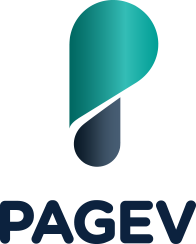"CAPS" BECOME THE MOST EXPORTED ARTICLE IN THE FIRSTHALF OF THE YEAR
Plastic production in 6 months approaches 4.3 million tons
The Turkish plastics industry achieved an increase in production by ton in the first half of 2015. The oil glut and euro/dollar parity caused losses in terms of value. In the first half of 2015, the plastics industry produced 4.3 million tons of plastic worth 16.4 billion dollars. Growth rate for the first half was 1.4%. According to a report by PAGEV, the consumption of plastics products in the domestic market increased by 2.6% during the same period.
The Turkish Plastics Industry Foundation (PAGEV) issued a comprehensive report on the state of the industry in the period between January and June 2015. According to the report, the plastics industry, composed of 14,000 companies and approximately 250,000 employees, achieved 1.4% growth in the first six months. The industry accounted for 32% of total chemical exports, and became the top chemical exporter. The export of plastic products and raw materials in the same period reached 1.1 million tons and 2.6 billion dollars.
Plastics consumption increases by 2.6%, the domestic market leads the increase
Production in the plastics industry increased by 1.4% in terms of quantity to 4.3 million tons, while production by value declined by 10.5% to 16.4 billion dollars in the first half of 2015. The decline in value is linked to the global oil glut and the Euro/dollar parity.
Plastic packaging had the lion's share of plastic production with 1.7 million tons, followed by plastic construction materials at 945,000 tons.
Capacity utilization in the period was 72%. The domestic consumption of the industry increased by 2.6% compared to H1 2014, reaching 3.8 million tons.
Growth brings an increase in machinery investments in the industry. In the first half of 2015, 394 million dollars were invested in machinery. The total machinery and equipment investment of the plastics industry between 2003 and 2015 reached 8 billion dollars, 79% of which was through imports.
Plastics industry exports decline as oil prices fall
Export of plastic products declined by value and quantity in the first half of 2015 compared to the same period last year. The decline by quantity was 2.7% for a total of 779,000 tons, and decline by value was 13% to 2.17 billion dollars. The largest export markets of the industry between January and June 2015 were Iraq, Germany and United Kingdom.
In addition to direct exports, the plastics industry accounts for a significant share of Tuýrkish exports through industries such as automotive, white goods, electronics, and construction. Including indirect exports, the total plastics export in the first half of 2015 was 4.5 billion dollars.
Caps are the leader of plastics exports in H1 2015
Although the overall exports of the plastics industry declined by 2.4%, the subsectors of plastic caps/lids, plastic kitchenware, plastic flexible films and plates increased by 7% in exports. The leading export article was plastic caps with an increase of 17.2%.
The export of plastic raw materials in the same period declined by 1% in terms of quantity to 341 million tons, and decreased by 20% in value to 471 million dollars. The largest raw material export markets for the industry between January and June were Germany, Egypt and Russia.
"We can act as a catalyst to translate the success of the plastics industry in foreign trade to the petrochemical industry."
Discussing the first half results of the industry, PAGEV Chairman Yavuz Eroðlu said, "The decline in oil prices since the second half of last year had ramifications on raw material prices in the plastics industry. Both production and exports declined by value in the first half of 2015. Companies attempted to preserve their profitability through efficiency drives. We were expecting this decline in prices, so that was no surprise. The change in the Euro/dollar parity also caused declines in exports. According to current data, we may expect a year-end growth of 3.4% by quantity which is good, but far from impressive in an industry where the average growth has been 10% in each of the past 10 years. We need to grow more quickly. While the plastics industry continues to be the pride of Turkey with a foreign trade surplus, the petrochemical industry is still running deficits. We believe that the issues in the petrochemical industry may be alleviated by developing international clustering models with the nearby Gulf Countries and Iran. As the plastics industry, we are prepared to be a part of the solution for the petrochemical industry both with projects and as a catalyst."
Explaining that the first half recorded a growth of 1.4% despite all hindrances, Yavuz Eroðlu said, "We continue to improve our efficiency parallel to our growth in the industry. Our industry was a leader on the 2014 Istanbul Chamber of Industry 2nd 500 List in terms of sales turnover per employee in production. In 2014, the sales turnover in annual production increased by 114% compared to 2013 to a total of TL 716,000. In other words, the same employee now achieves twice as much turnover. This is all very pleasant, but we still have urgent things to do in order to sustain growth and increase in efficiency. First and foremost, this depends on stability. The political and economic difficulties worldwide, particularly in our direct neighbors, must come to an end soon. The devaluation in China, the world's largest importer, will contribute to the decline in raw material prices in the months to come. Although this may reduce our turnover, it will benefit profitability in the industry. The palstics industrty will continue to make Turkey proud through projects that convert the global economic turbulence into opportunities."

